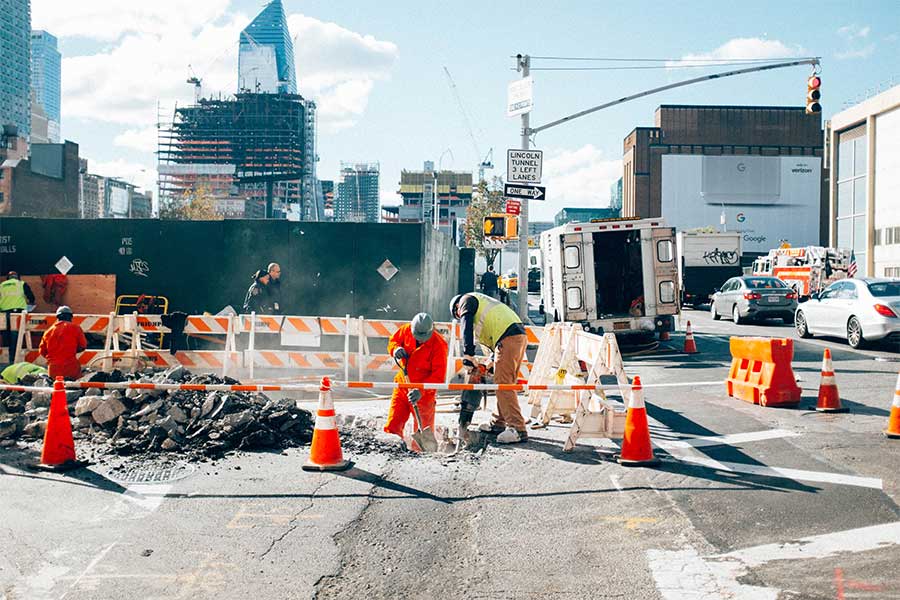Noise-Induced Hearing Loss (NIHL) What You Need to Know
Noise-Induced Hearing Loss used to be a serious problem, however, the incidence of it has reduced somewhat. The thing is, that NIHL or Industrial Deafness is preventable. In this article, Luke Glassford, who has a lot of experience handling claims for NIHL discusses the problem. I have also asked him to undertake a follow-up article to describe how a claims process is undertaken. First off, here is the first article in this series.
Also known as ‘occupational deafness’ and ‘noise-induced hearing loss’ (NIHL), industrial deafness refers to hearing loss as a result of being exposed to high levels of noise for an extended period of time in the workplace.
Industrial deafness can sometimes be a temporary condition, although there are many cases where the hearing loss is permanent. If the symptoms of industrial deafness are noticed and treated early enough, then the chance of the hearing loss becoming permanent are greatly reduced.

Photo by nicolas leclercq on Unsplash
Different types of industrial deafness
As well as temporary and permanent hearing loss, there are two other conditions that are classed as types of industrial deafness – tinnitus and acoustic trauma.
Temporary hearing loss
This is caused when someone is exposed to loud noise for a period of time, for example, while working in a factory with loud machinery.
If you notice your hearing is becoming affected, then the best thing to do is take yourself away from the noisy environment. In some cases, it can take up to 16 hours for your hearing to return to normal, as long as you are in a quiet environment.
Permanent hearing loss
Permanent hearing loss can occur when an individual is regularly subjected to a high level of noise for a long duration of time without wearing adequate ear protection.
This level of hearing damage is caused by the hair cells within the ears deteriorating over time because of the constant noise.
Tinnitus
Approximately 15% of people will experience some form of tinnitus at some point in their life, which is caused by long-term exposure to high levels of noise.
For many of us, the tinnitus symptoms subside after a few hours (e.g. you may experience a buzzing or humming in your ears after a live concert), but for some the symptoms are permanent.
The symptoms of tinnitus include a buzzing, ringing, humming or whistling noise in one or both ears, and sufferers often feel that the sounds are coming from an external source.
Acoustic trauma
Also sometimes referred to as ‘acoustic shock’, acoustic trauma occurs when an individual is exposed to an extremely loud, one-off noise such as an explosion or a gunshot.
In terms of industrial deafness, acoustic trauma is a particular risk for those who work on the telephone a lot using a headset. Sudden and unexpected feedback noises, loud fax machine tones or telephone signals can all cause acoustic trauma, which can lead to irreparable damage such as a perforated eardrum.
Occupations with a high risk of industrial deafness
There are certain jobs that pose a higher risk of suffering industrial deafness, such as:
- Construction workers
- Engineers
- Factory workers
- Jobs in the music industry
There are also certain tools and machinery used in the workplace that are more likely to cause industrial deafness:
- Bench grinders
- Break pad grinders
- Cold cutting circular saws
- Concrete vibrators
- Hammer mills
- Hydraulic power packs
- Multi-headed grinder
- Pedestal grinder
- Pneumatic transfer systems
- Sand burners
Industrial deafness symptoms
The common symptoms of all four of the different types of industrial deafness (temporary and permanent hearing loss, tinnitus and acoustic trauma) include:
- Lack of hearing in one or both ears
- Missing part or full sentences in conversations
- Struggling to hear speech when there is background noise
- Having to turn the television or radio up to a particularly high volume
- Hearing a constant ringing, buzzing, whistling, hissing or droning sound in one or both ears (this usually refers to tinnitus)
How to prevent industrial deafness
The Control of Noise at Work Regulations 2005 is in place to protect employees from being exposed to high levels of noise at work. All employers have a duty of care to follow the guidelines laid out by the Regulations to make sure their employees are not at risk of developing any form of hearing damage while at work.
The Regulations include different ‘action levels’ for different levels of noise in the workplace. If the noise is 80db then employers are duty bound to provide training and information to their employees regarding the risks, as well as providing sufficient hearing protection.
The guidelines state that noise in the workplace should never exceed an average of 87db.
There are actions that both employers and employees can take to reduce the risk of industrial deafness, such as:
Employers:
- Make sure the legal limits on noise exposure are never exceeded
- Ensure that noise level risk assessments are carried out thoroughly, correctly and regularly
- Provide employees with sufficient information and training regarding noise levels in the workplace
- Provide employees with adequate hearing protection equipment and ensure that they are worn correctly and at all times
- Take sufficient action to minimise the level of noise in the workplace where possible (e.g. using silencers on equipment)
Employees:
- Make sure hearing protection is used correctly and at the right times (for example, ear defenders, ear plugs, semi-aural insets)
- Ensure you are correctly trained to use equipment in the workplace
- Make sure that all hearing protection is correctly maintained
- Do not stay in areas with high levels of noise for periods of time which are longer than necessary
If you like what you see, share it so others can benefit
Posted by Luke Glassford

Luke Glassford
With over 10 years of experience working with personal injury experts, Luke has a wealth of knowledge regarding the compensation claims process in the UK. He works with CL Legal – personal injury solicitors specialising in no win no fee industrial deafness compensation claims.
Looking For the Latest Hearing Aids or A Hearing Test?
Arrange a consultation with a trusted Independent hearing healthcare professional in your area



